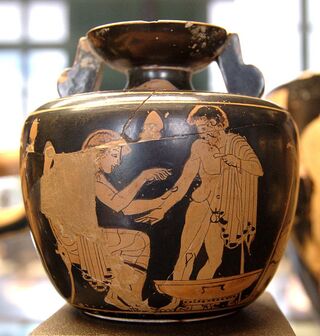Psychology
Do Coincidences Save Lives?
These stories say yes. How can they be explained?
Posted March 12, 2021 Reviewed by Davia Sills
Some coincidences involve an uncanny timing of events that delay the time of death or disability. Following are some of those many stories.

Pediatrician Harley Rotbart collected many such stories in his physician-contributed anthology called Miracles We Have Seen: America's Leading Physicians Share Stories They Can't Forget. One striking example from this collection involved Father Carl. This beloved priest finished rounds on his hospitalized parishioners in a suburban Boston hospital. He then got into an otherwise empty elevator, pressed the button for the lobby, and collapsed from a massive heart attack.
But somehow the elevator didn’t go to the lobby—instead, the doors opened on the second floor, the floor housing the cardiac intensive care unit (CICU), where the cardiologist in charge of the unit was waiting at the elevator to go upstairs to make his rounds. The cardiologist immediately took charge of the unconscious priest and set about the necessary treatment. Had the elevator not deposited him on just the right floor with just the right person, Father Carl would have died.
During an evaluation of her cancer, physicians scanned the brain of politician Jennifer Kitchen of Craigsville, Virginia, for metastasizes. They found an aneurysm that would soon burst and disable or kill her.
Janet Payne of Kinkcora, Prince Edward Island, Canada, was approaching a stoplight with her three children in the back seat. Although the light had turned green, she stopped a few yards from the intersection to adjust the seat belt of one of the children. She turned back to drive and saw a truck speed through the intersection that would have hit her had she proceeded through.
One of our study patients at the University of Missouri-Columbia research (see this Psychology Today post) reported that she was in her car at an intersection when the light turned green. At that moment, the phone rang. It was her brother who rarely calls and whom she thinks of as her guardian angel. She looked up to see a truck barreling through the red light. It would have hit hurt had she not paused to answer the phone.
Psychologist Chris Mackey of Geelong, Australia, has several reports of people being saved from suicide by coincidences.
A man was in a hidden quarry about to lose consciousness from carbon monoxide poisoning when the cellphone next to him rang. He answered it and gave enough of a reluctant hint of where he was to be found in the nick of time. He then felt he was meant to live and made a full and lasting recovery from depression.
Another man had a gun in his mouth, about to pull the trigger, when he looked out the window to see a blackbird looking at him. The bird took flight and smashed into the window and died. The man thought that the bird had died so he could live. He went to rehab for his drug addiction, recovered, and began living normally.
Chris also wrote about a personal example in his book The Positive Psychology of Synchronicity about a coincidence associated with his own psychiatric hospitalization for depression. “I very rarely experienced any synchronicity at that time. When I was at my absolutely lowest ebb, I was on the threshold of developing a suicide plan. I sat in a bleak hospital corridor, thinking that if nothing changed in the next five minutes, I would shift my focus to how I could end my life. Within a couple of minutes, a nurse approached me to fetch me to answer a phone call from a good friend who lived interstate and only rarely called. The timing seemed so uncanny—synchronistic assistance from the outside—that it completely stopped any further thought of taking action to end my life. I still believe it’s quite possible I would not be here if not for that phone call.”
Each of these is a single instance that statistically minded people can attribute to the unproven Law of Very Large Numbers: In large populations, any weird thing could happen. (To read a critical evaluation of this “law,” please see Sharon Rawlette’s Psychology Today post on the subject.)
However, consider the experiences of Executive Coach Katrin Windsor of Boulder Colorado.
“I once missed a train that crashed. I once had a big tree fall on me, but strangely it fell in such a way that I stood in the opening of its big branches and it didn’t touch me!? I once hiked with my husband and two sons in Yellowstone. John and Bryan walked 20 feet ahead of Dan and me. Suddenly a big tree fell right between us and didn’t touch anybody!? I once missed a Guided Volcano Jeep tour in Sicily. We missed it by 1 minute and watched the Jeep we were supposed to be on leave without us. So we sat down at the Tour Office restaurant and ordered a plate of pasta. In the middle of chowing down our pasta, ambulances and sirens and helicopters arrived, and suddenly the Jeeps we missed returned with two dead tourists because the volcano became active and started spewing big rocks!?”
Some people will invoke the Law of Very Large Numbers. Others might attribute this remarkable string to God or the Universe. As a psychotherapist, I look for personal responsibility in my patients as well as in coincidences. Janet Payne attributes her stopping before the intersection at a green light to a strong intuitive feeling to not proceed and to fix the seat belt of her child.
To the question of explanation, Katrin Windsor replied, “I frankly have no clue as to why I have been so lucky, except that it obviously is not my time yet to go. My last lucky accident was when I had a bike crash in Denver in December and miraculously fell between two parked cars into an empty parking spot, so I didn’t bounce off a parked car and back into the busy street, where cars would have had a hard time avoiding me. My take from that most recent accident is that I’m clearly here to channel spirit."
Again, some will invoke the Law of Very Large Numbers while others will invoke some form of divine intervention. In the study of coincidences, resolving questions like these are central to its purpose. See this Psychology Today post from Sharon Rawlette about personal explanations for meaningful coincidences.




